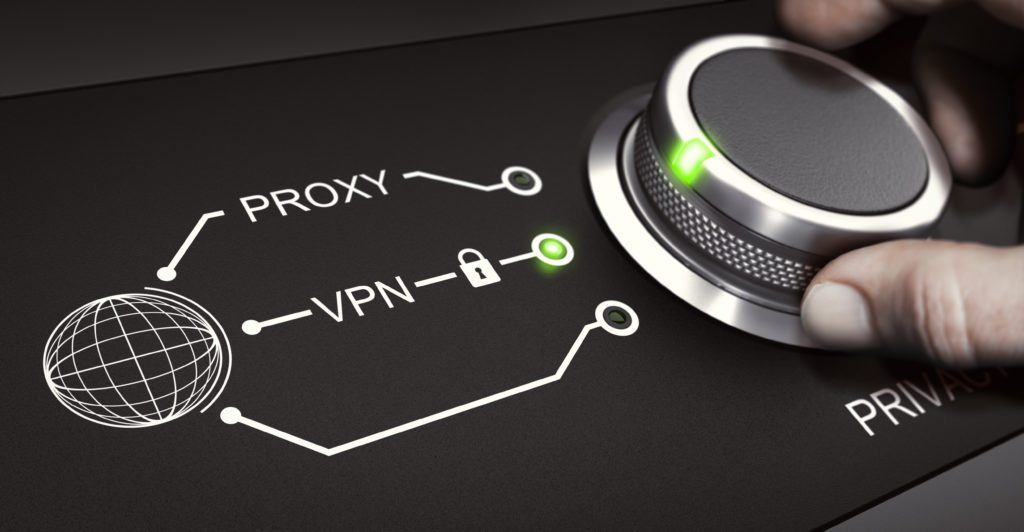VPN vs. Proxy: What’s the Difference and Which One is Better?
In the ever-evolving digital landscape of today, where ensuring online privacy and security has become an utmost priority, tools like Virtual Private Networks (VPNs) and proxies have emerged as indispensable assets.
These technological solutions offer layers of anonymity and protection during web browsing, but they serve distinct purposes, each carrying its own set of advantages and limitations.
In this comprehensive discourse, we delve into the fundamental disparities between VPNs and proxies, guiding you towards determining which option aligns better with your specific requirements.

Understanding VPNs (Virtual Private Networks)
How VPNs Work
A Virtual Private Network (VPN) is a technology that creates a secure and encrypted connection between your device and the internet.
When you connect to a VPN server, your internet traffic is routed through an encrypted tunnel, making it difficult for third parties, such as hackers or your internet service provider (ISP), to intercept and decipher your data.
This level of encryption is especially crucial when connecting to public Wi-Fi networks or when you want to maintain your privacy from prying eyes.
Advantages of VPNs
- Security: VPNs provide robust security by encrypting your data, making it nearly impossible for unauthorized entities to access your information.
- Anonymity: VPNs mask your IP address, replacing it with the IP address of the VPN server. This enhances your online anonymity and makes it harder for websites to track your activities.
- Bypass Geo-restrictions: VPNs allow you to access content that might be blocked in your region by routing your connection through servers in different locations. This is particularly useful for streaming services and websites with regional restrictions.
- Data Privacy: With a VPN, your ISP can’t monitor your online activities, ensuring that your browsing history remains private.
- Remote Access: Businesses often use VPNs to provide remote employees with secure access to company resources, ensuring data security even when working from external locations.
Limitations of VPNs
- Reduced Speed: Due to the encryption and rerouting of data, your internet speed can be slightly reduced when using a VPN.
- Cost: While some VPN services offer free plans, premium VPNs with more robust features often come with a subscription fee.
- Device Compatibility: Setting up a VPN might be more complex on some devices, especially for individuals who aren’t tech-savvy.
Understanding Proxies
How Proxies Work
A proxy server acts as an intermediary between your device and the internet. When you request a web page or resource, your connection is relayed through the proxy server. The server then forwards your request to the destination website, and the website’s response is relayed back to you through the proxy. Proxies can be set up to hide your IP address, thereby providing a certain degree of anonymity.
Advantages of Proxies
- IP Masking: Like VPNs, proxies can also mask your IP address, making it difficult for websites to identify your actual location.
- Geo-unblocking: Proxies can help you access geo-restricted content by routing your connection through servers in different countries.
- Simple Setup: Configuring a proxy is generally easier than setting up a VPN, making it a good option for users who want a quick solution.
- Caching: Proxies can cache web content, which can lead to faster loading times for frequently visited websites.
Limitations of Proxies
- Limited Security: While proxies can provide a basic level of anonymity, they often lack the robust encryption that VPNs offer. This means that data transmitted through a proxy may still be vulnerable to interception.
- No Full Encryption: Unlike VPNs, which encrypt all your internet traffic, proxies may only encrypt the data exchanged between you and the proxy server.
- Limited Privacy: Some proxies may log your browsing activities, which could compromise your privacy.
- Incompatibility with Some Applications: Certain applications and services may not work properly with proxy configurations.
Which One is Better: VPN or Proxy?
The choice between a VPN and a proxy largely depends on your specific needs and priorities:
- Privacy and Security: If your primary concern is safeguarding your data and maintaining privacy while browsing, a VPN is the superior choice. The encryption provided by VPNs ensures that your online activities are hidden from prying eyes, offering a higher level of security compared to proxies.
- Anonymity and Bypassing Restrictions: Both VPNs and proxies can help you bypass geo-restrictions and access blocked content. However, VPNs offer better anonymity due to their comprehensive encryption and IP masking.
- Speed: If speed is crucial, proxies might have a slight advantage. Since proxies don’t always encrypt all your data, they can lead to faster loading times for websites. However, this advantage comes at the cost of reduced security.
- Ease of Use: Proxies are generally easier to set up, making them suitable for users who want a quick solution without delving into complex configurations.
- Cost: While both free and paid options are available for both VPNs and proxies, premium VPN services usually provide more comprehensive features, which might justify the cost for those seeking enhanced security and privacy.
Conclusion
In the end, the decision between using a VPN or a proxy boils down to your priorities. If your main focus is on robust security, data privacy, and comprehensive encryption, a VPN is the clear winner.
On the other hand, if you’re looking for a simple solution to bypass geo-restrictions and achieve basic anonymity, a proxy might suffice.
Remember that each technology has its own advantages and limitations, so it’s essential to assess your needs and choose the one that aligns best with your online objectives. Whether you opt for a VPN or a proxy, both tools play a vital role in maintaining a secure and private online presence in today’s interconnected world.